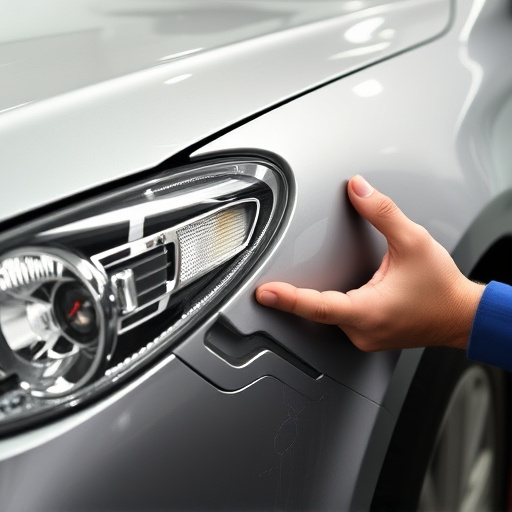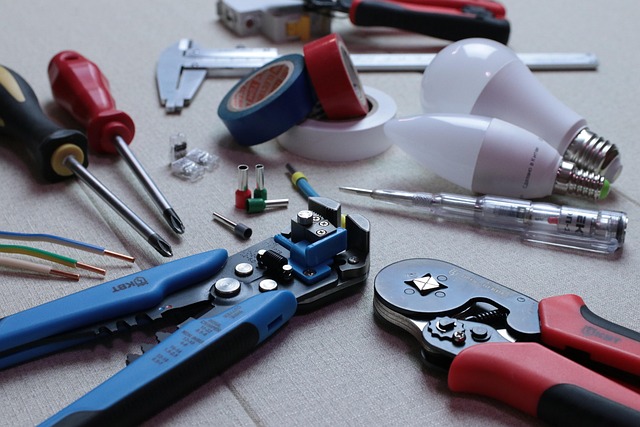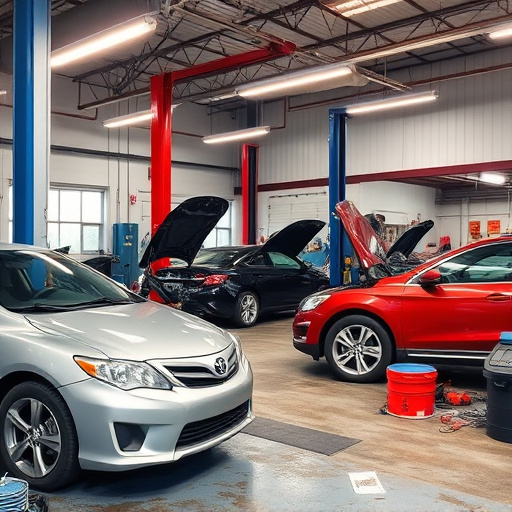Collision repair insurance protects policyholders from financial burden after vehicle damage, covering exterior, interior, and mechanical repairs regardless of fault. For minor damages, consider on-site repairs, deductible implications, and cost vs. coverage. In complex scenarios with significant damage or multiple vehicles, understand deductibles, claim processes, replacement assessments, and potential negotiations to navigate intricate cases effectively.
Collision repair insurance is an essential aspect of vehicle ownership, offering financial protection during unforeseen accidents. This article guides you through understanding your coverage and navigating various scenarios. We explore when to file a claim for minor damages, as well as complex cases involving total losses. By delving into these topics, you’ll gain insights on maximizing your collision repair insurance benefits, ensuring a smoother process post-accident.
- Understanding Collision Repair Insurance Coverage
- When to File a Claim for Minor Damages
- Navigating Complex Cases and Total Loss Claims
Understanding Collision Repair Insurance Coverage

Collision repair insurance coverage is designed to protect policyholders from financial strain when their vehicles sustain damage due to accidents or other unforeseen events. Understanding this coverage is crucial before making a claim. When you have collision insurance, it typically covers repairs or replacements for your vehicle after a collision with another object or vehicle, regardless of who is at fault. This includes damage to both the exterior and interior of your car, as well as its mechanical components.
Knowing what’s covered under your collision repair insurance is essential when considering body shop services. For instance, if you’re involved in a minor fender bender, your collision insurance may cover the cost of painting and repairing the dented area without requiring you to pay out-of-pocket expenses. However, for more severe vehicle collisions or extensive damage, the insurance company might require an estimate from a reputable body shop, ensuring that the repairs are both safe and effective, effectively transforming your damaged vehicle into a restored one.
When to File a Claim for Minor Damages

When it comes to minor damages from a collision, deciding whether to file a claim with your collision repair insurance can be tricky. The threshold for what’s considered “minor” varies by both vehicle and policy, but generally includes dents, scratches, or cracked windshields (assuming they’re not directly impacting visibility). If these types of damages can be efficiently repaired with on-site fixes like paintless dent removal or a quick windshield replacement, it might be more prudent to opt for these services first.
Consider factors like the cost of repairs versus your deductible when deciding. If the repair bill is likely to be lower than your collision deductibile, filing a claim could result in higher out-of-pocket expenses due to the claim itself and potential increased insurance premiums later on. For example, if you have a $500 deductible and the auto glass repair or tire service costs only $200, it may be more financially sensible to pay for the repairs directly and avoid the added hassle of filing a claim.
Navigating Complex Cases and Total Loss Claims

When dealing with complex cases or total loss claims, understanding your collision repair insurance coverage becomes even more crucial. These situations often involve significant damage or multiple vehicles, making them more intricate to manage. In such scenarios, it’s vital to communicate effectively with your insurance provider to ensure a smooth process. Your insurer can guide you through the intricacies of coverage, including deductibles and any additional costs that might be applicable.
Navigating these cases requires careful consideration of various factors. For instance, if your vehicle is deemed a total loss by the vehicle body shop, tire services, or auto maintenance specialists involved, you’ll need to understand how your insurance policy handles such situations. This includes knowing the process for filing a claim, assessing replacement or repair costs, and potentially negotiating with insurers or even dealing with salvage title issues. Being prepared and well-informed can significantly ease the stress of these complex cases.
Collision repair insurance is a valuable tool for navigating unexpected vehicle damage. By understanding your coverage options, you can make informed decisions about when to file a claim, whether for minor repairs or complex cases involving total loss. Remember, knowing when to utilize your collision repair insurance ensures you receive the necessary support and compensation for your vehicular needs.













